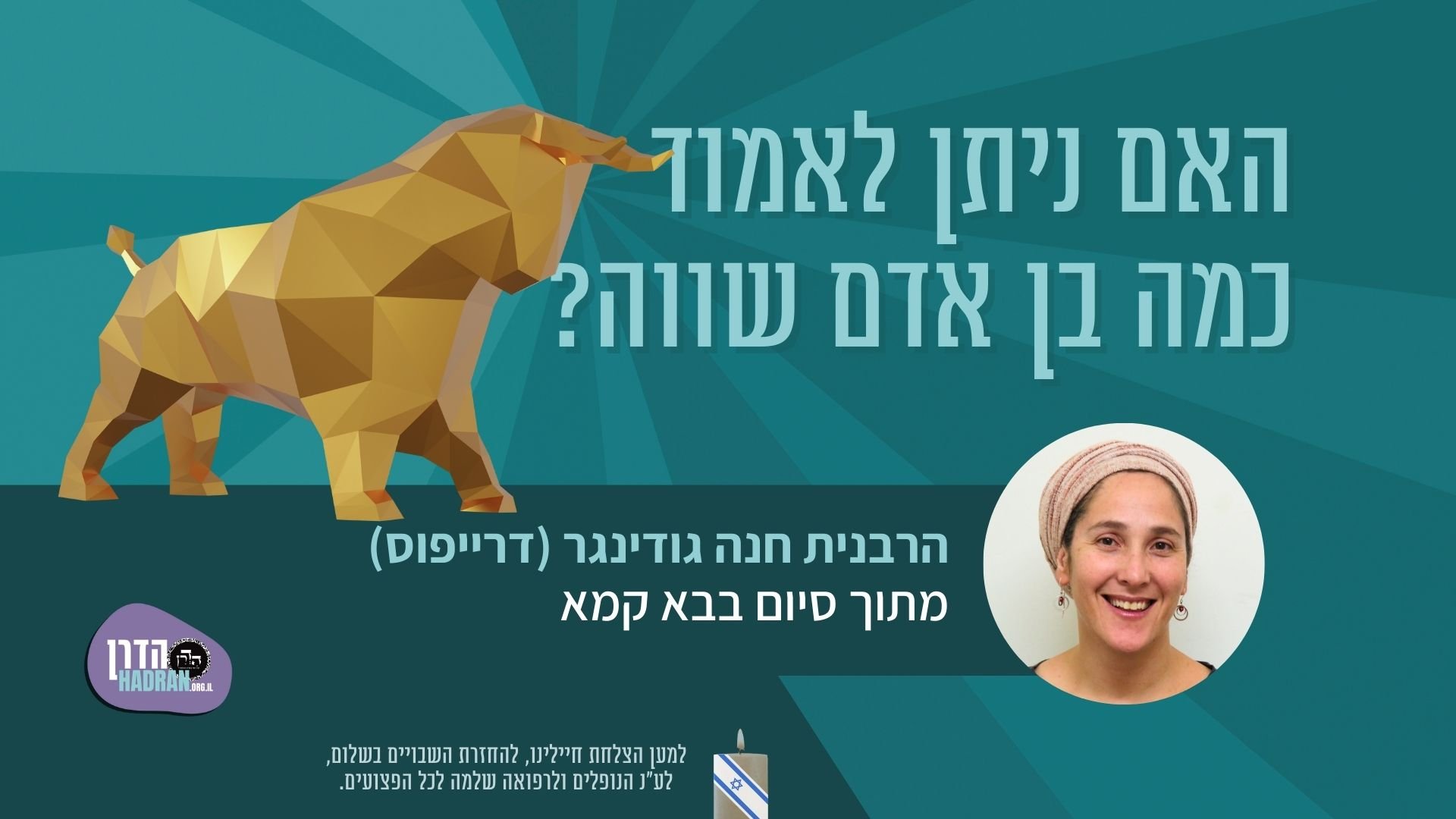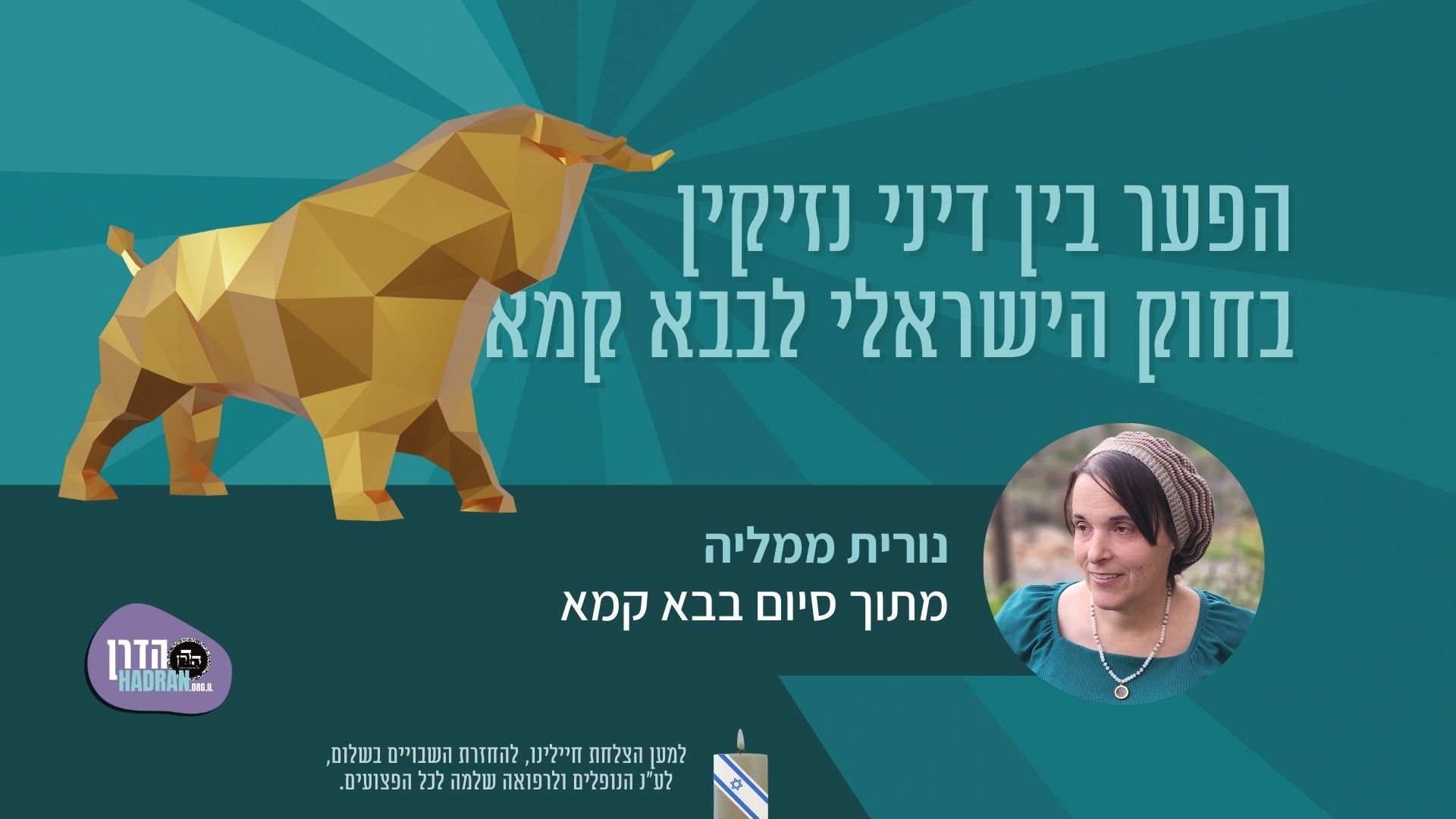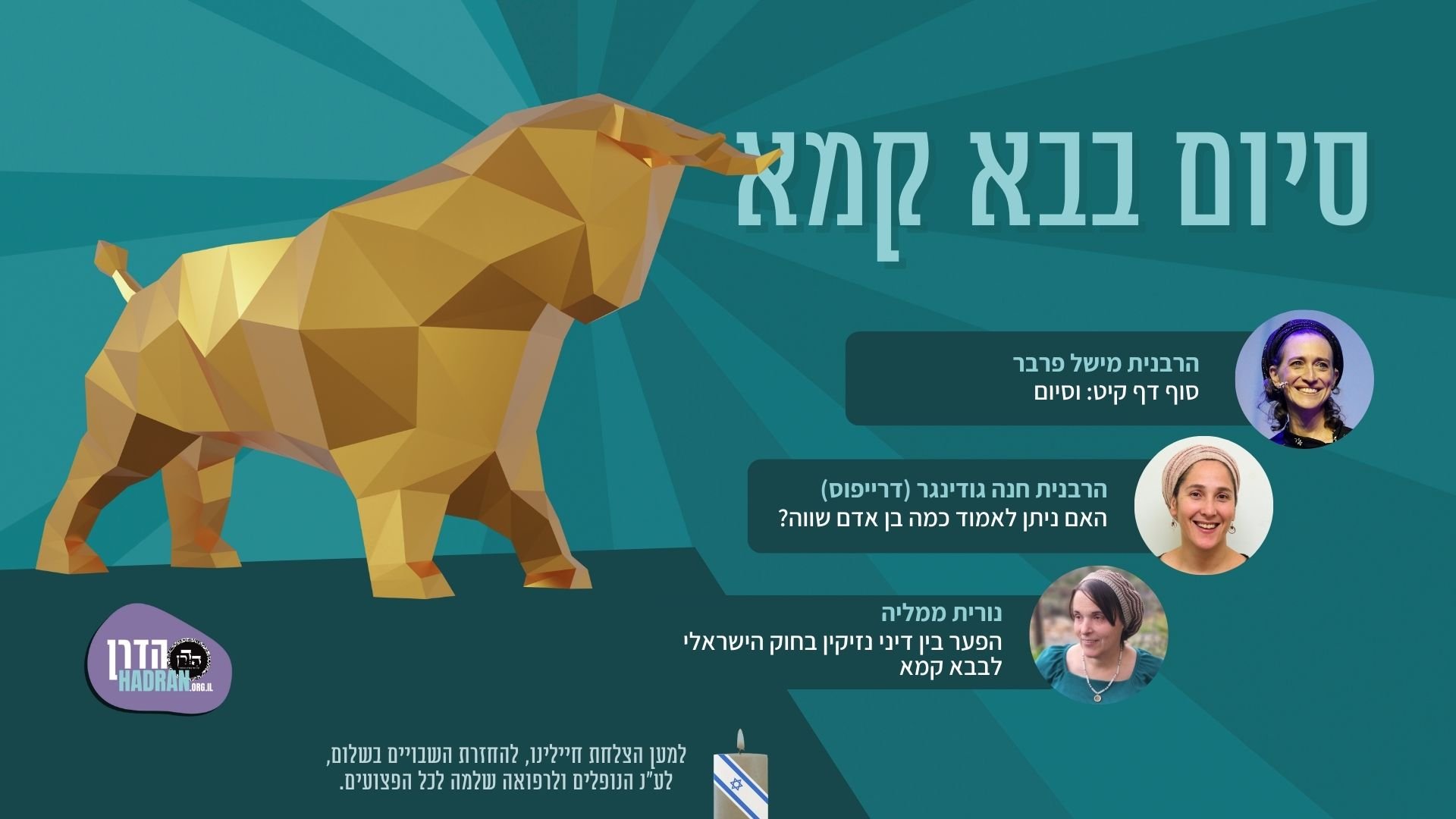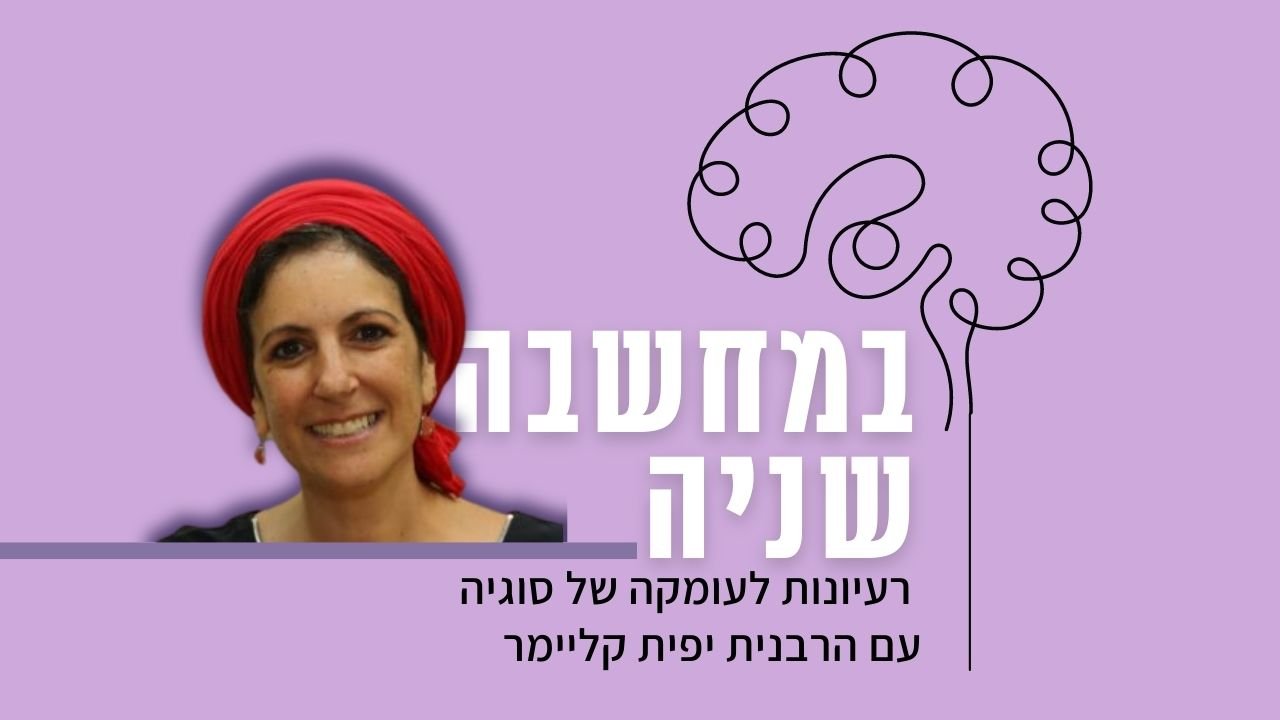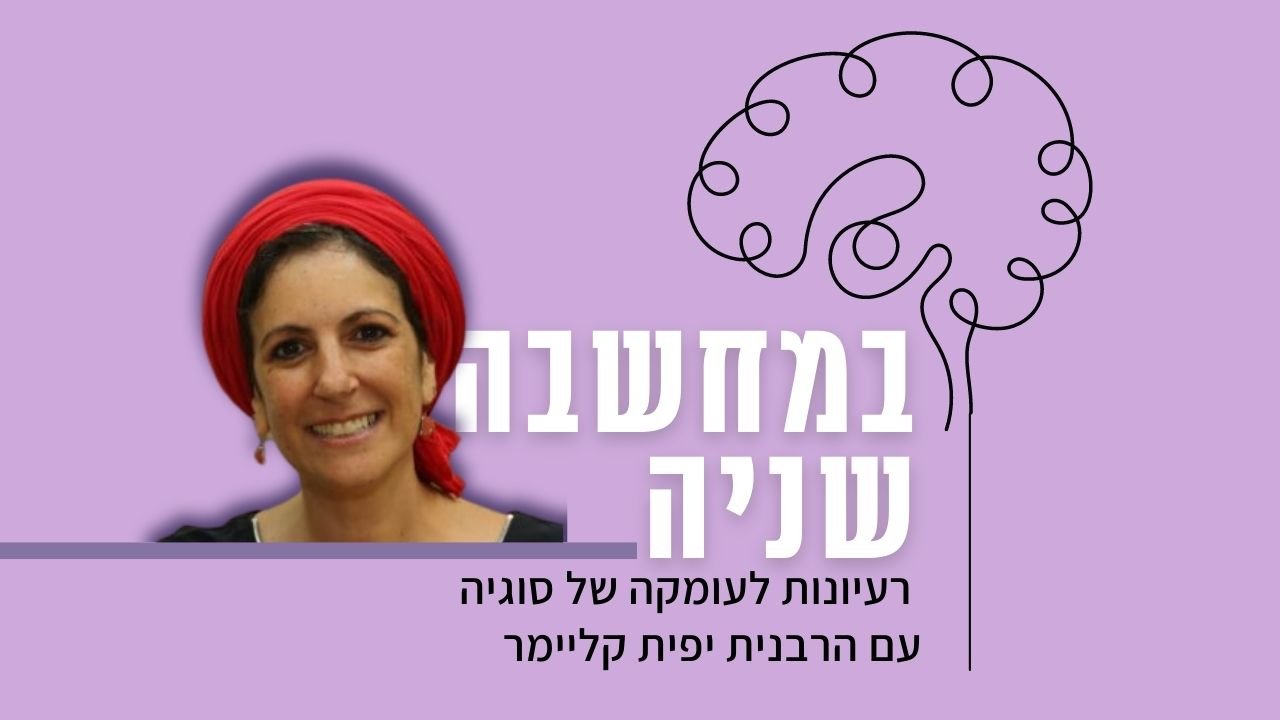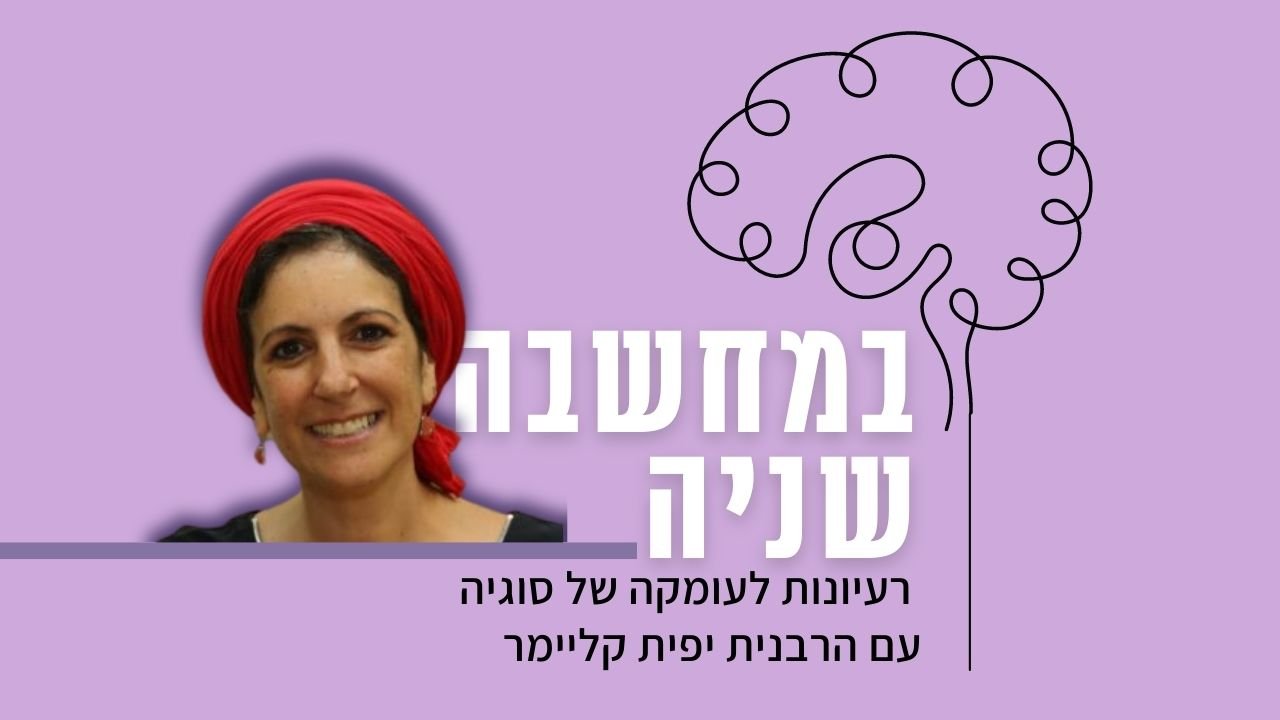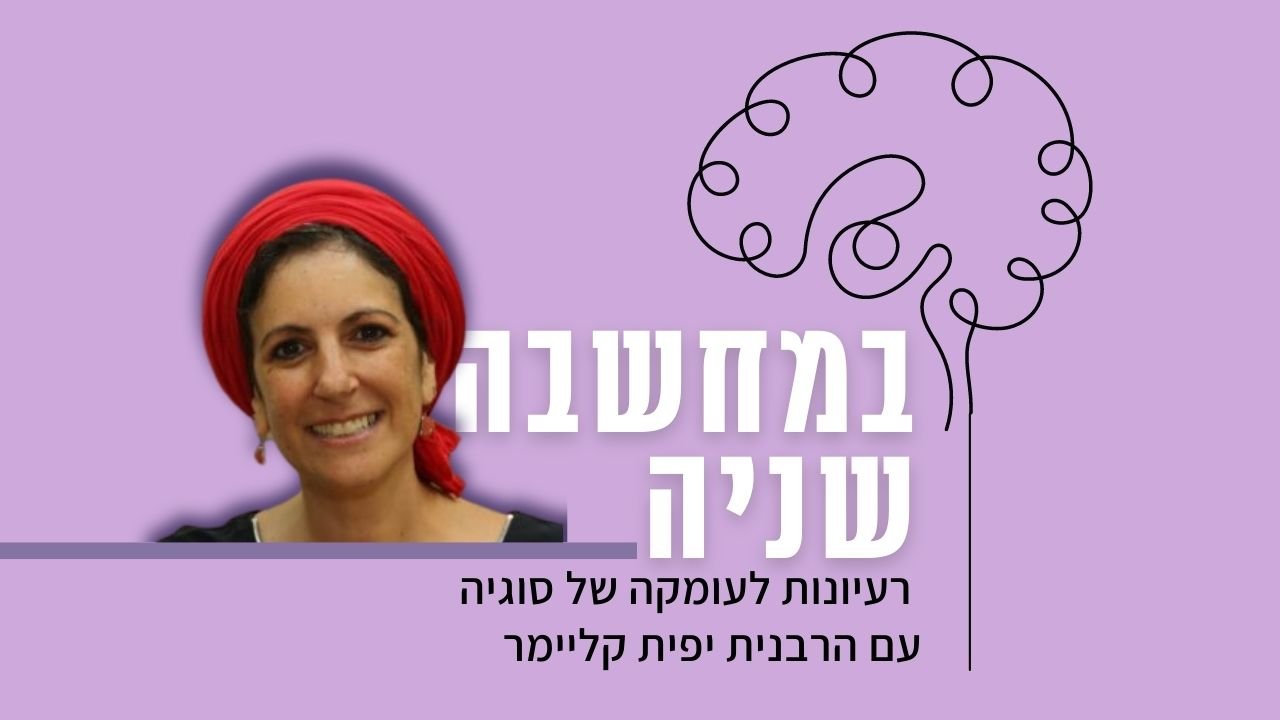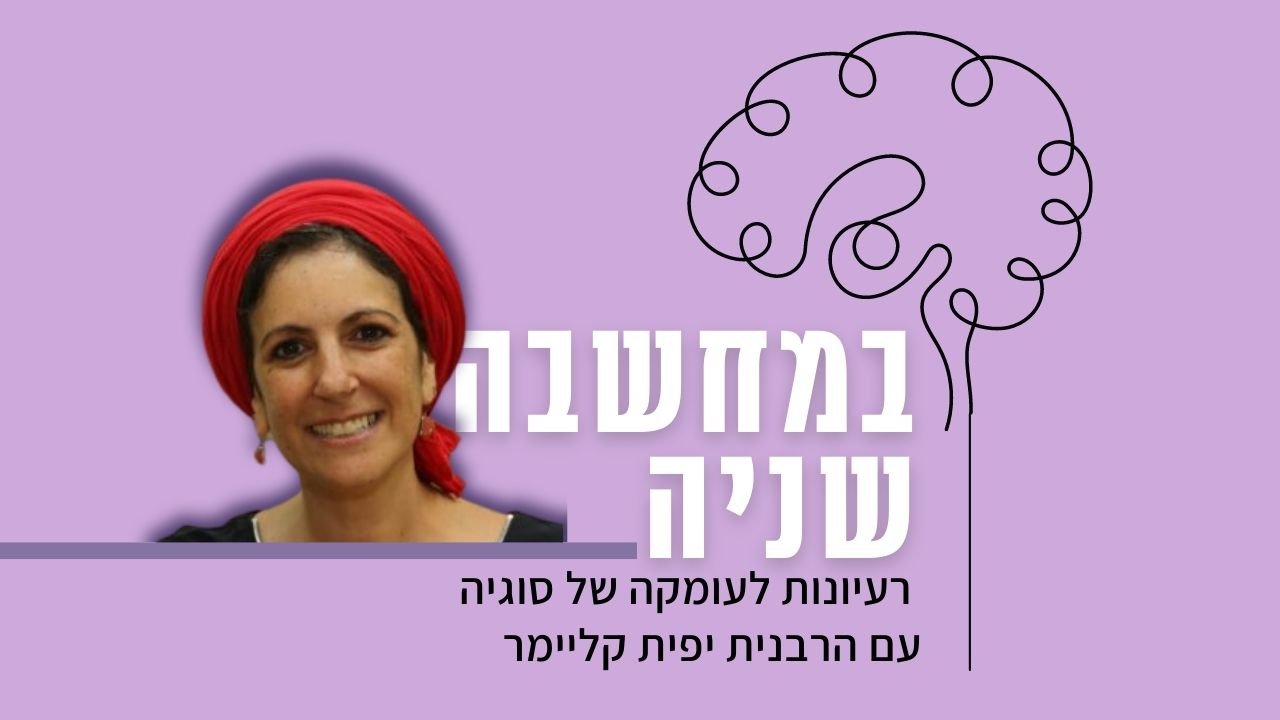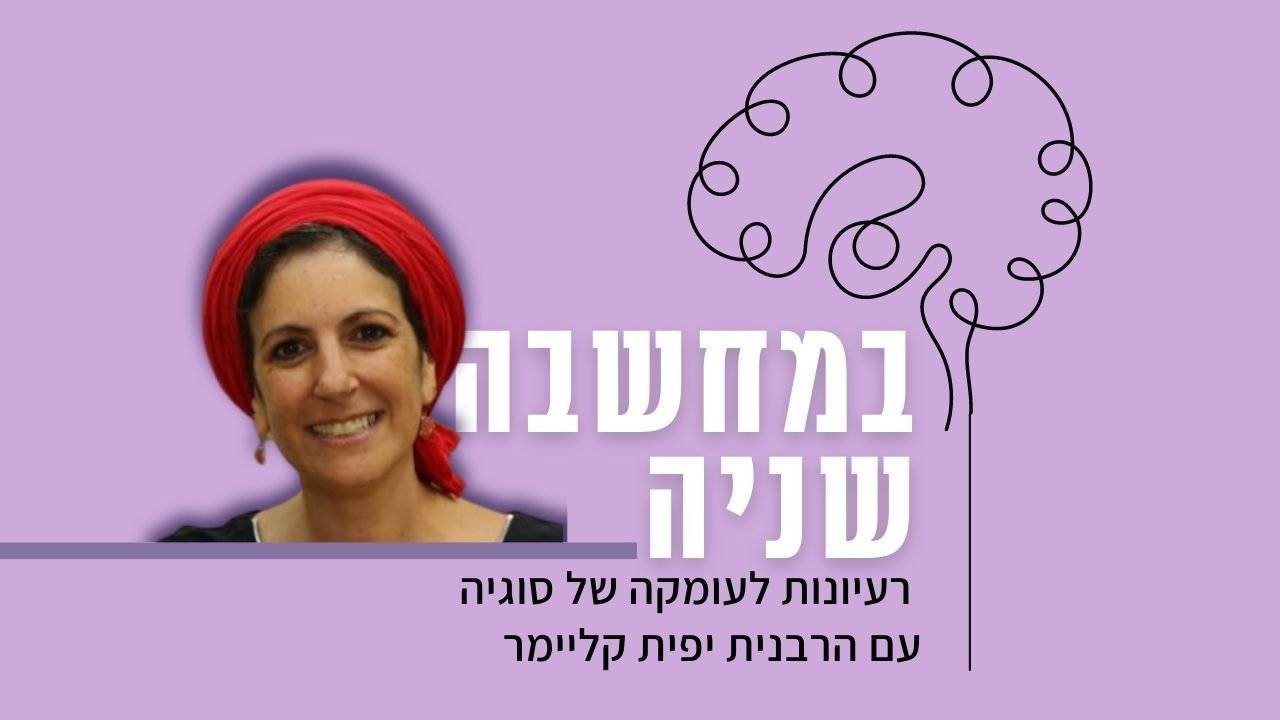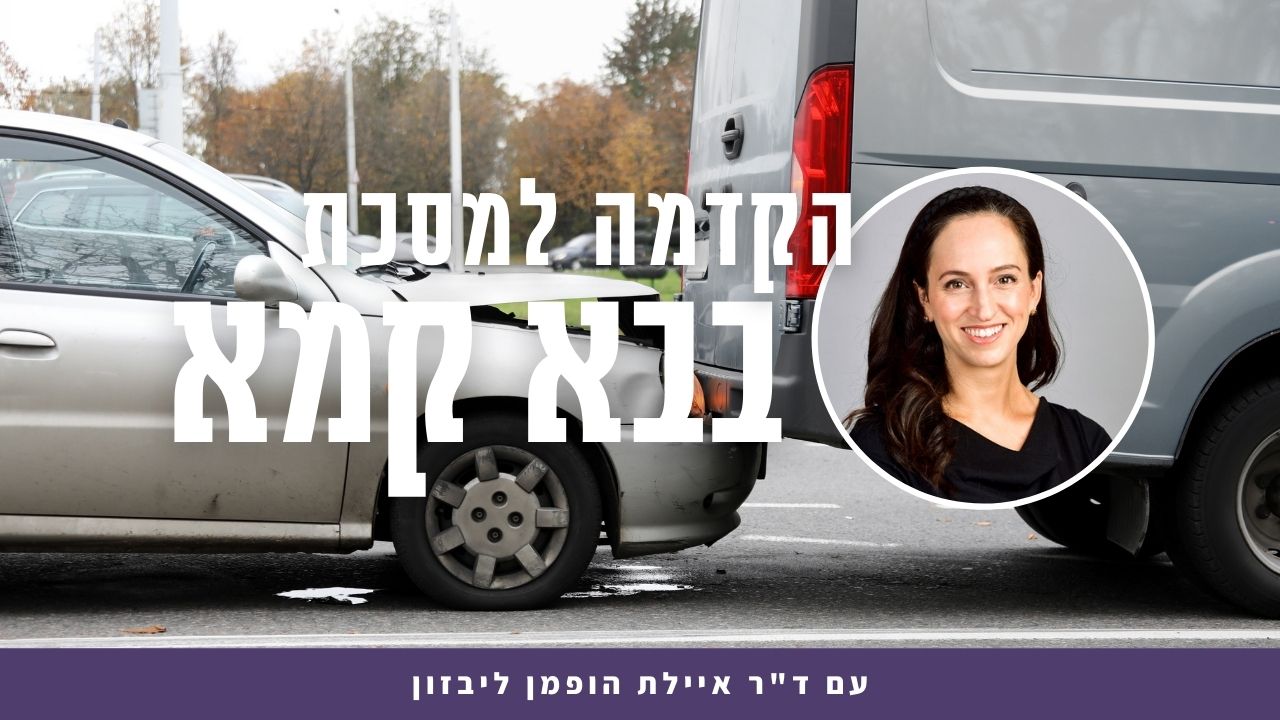מוצעות שתי הצעות שונות להסביר לפי איזו דעה סוברת המשנה כשהיא פוסקת שיש תשלום עבור צער גם כשאין תשלום לנזק. זה תלוי איך מבינים את המחלוקת בין רבי לבן עזאי בדרשת הפסוק בשמות כא:כה. כיצד מעריכים צער כאשר יש תשלום נזק? ישנן שלוש דעות לגבי תשלומים עבור גידולים שהתפתחו עקב הפציעה – האם משלמים עלויות רפואיות ולא שבת (אובדן עבודה) או שניהם? הגמרא דנה במקרה הספציפי בו הם חולקים. חלק מהוויכוח ביניהם מתרכז סביב השפה הכפולה המשמשת בפסוק "ורפא ירפא” – שניתן להבין ככוללת מקרה נוסף בו משלמים עלויות רפואיות או אולי בא ללמד שלרופאים יש זכות לעסוק ברפואה וזה אינו מתנגש עם אמונתו בקב”ה. בפיצוי על עלויות רפואיות, החובל אינו יכול להתעקש שירפא את הנחבל בעצמו או שילך לרפוא שעובד בחינם או רופא שבא מרחוק. הנחבל לא יכול להיות הרופא לעצמו כי אולי לא יעשה כלום ויבקש בהמשך עוד כסף מהחובל. הוא גם לא יכול להחליט על סכום קצוב כי אולי ייקח הכסף לעצמו ולא ילך לרופא ואנשים יגידו דברים לא טובים על החובל. מהיכן דרשו שיש לשלם ארבעת התשלומים גם במקרים שיש תשלום לנזק? מהן דוגמאות למקרים שבהם כל אחד מארבעת התשלומים ישולם אם לא היה תשלום לנזק (הפסד כספי לנחבל)? מדוע משלמים הפסד שכר (שבת) למי שכורת יד כאילו היה שומר מלפפונים – מה אם האדם עבד בעבודה עם שכר יותר גבוה? תשלום שבת תלוי באיזה נזק נגרם ואיזו עבודה האדם מסוגל כעת לעשות.
הלימוד החודש מוקדש לרפואת פיליס הכט, גיטל פעשא בת מאשה רחל על ידי חברותיה הרבות שאוהבות ומעריכות אותה.
רוצה להקדיש שיעור?

כלים
הלימוד החודש מוקדש לרפואת פיליס הכט, גיטל פעשא בת מאשה רחל על ידי חברותיה הרבות שאוהבות ומעריכות אותה.
כלים
העמקה
רוצה להבין מה באמת קורה מתחת לפני השטח של הסוגיה?
שיעורים, פודקאסטים והרחבות של מיטב המורות שלנו יפתחו לך עוד זוויות וכיווני חשיבה.
חדשה בלימוד הגמרא?
זה הדף הראשון שלך? איזו התרגשות עצומה! יש לנו בדיוק את התכנים והכלים שיעזרו לך לעשות את הצעדים הראשונים ללמידה בקצב וברמה שלך, כך תוכלי להרגיש בנוח גם בתוך הסוגיות המורכבות ומאתגרות.
פסיפס הלומדות שלנו
גלי את קהילת הלומדות שלנו, מגוון נשים, רקעים וסיפורים. כולן חלק מתנועה ומסע מרגש ועוצמתי.
בבא קמא פה
בִּכְלָל וּפְרָט הַמְרוּחָקִים זֶה מִזֶּה קָמִיפַּלְגִי –
Rabbi Yehuda HaNasi and ben Azzai disagree over whether the hermeneutical principle of a generalization and a detail is applied with regard to a generalization and a detail that are distant from each other. When a generalization is followed by a detail, the halakha applies only in the case specified in the detail. The verse states: “Keviyya for keviyya, a wound for a wound, ḥabura for ḥabura” (Exodus 21:25). The word “keviyya,” as stated in the beginning of the verse, is a generalization that includes burns not accompanied by bruises as well as burns accompanied by bruises. “Ḥabura,” as stated at the end of the verse, is a detail of a burn that is accompanied by a bruise. The Torah distances the detail, “ḥabura,” from the generalization, “keviyya,” by stating the halakha of: “A wound for a wound” between them.
רַבִּי סָבַר: אֵין דָּנִין אוֹתוֹ בִּכְלָל וּפְרָט, וּבֶן עַזַּאי סָבַר: דָּנִין אוֹתוֹ בִּכְלָל וּפְרָט. וְכִי תֵּימָא ״חַבּוּרָה״ לְרַבִּי לְמָה לִי? לְדָמִים יְתֵרִים.
Rabbi Yehuda HaNasi holds that since there is an intervening phrase between the generalization and the detail, one does not derive the halakha from the verse concerning burns and bruises by employing the principle of a generalization and a detail. Therefore, the one who caused the injury is liable to pay compensation for pain in all cases of burns, even those that are not accompanied by bruises. And ben Azzai holds that one does derive the halakha from the verse concerning burns and bruises by employing the principle of a generalization and a detail, and therefore the one who caused the injury is liable to pay compensation for pain only if the burn is accompanied by a bruise. And if you would say: According to the opinion of Rabbi Yehuda HaNasi, why do I need the Torah to state the halakha of “ḥabura for ḥabura,” as that is included as a subset of “keviyya”? The phrase mentioning “ḥabura” is necessary to teach the halakha of additional money, i.e., in a case where someone caused a burn with a bruise, he pays additional compensation for the bruise beyond that for the burn.
אוֹמְדִין כַּמָּה אָדָם כַּיּוֹצֵא בָּזֶה רוֹצֶה לִיטּוֹל וְכוּ׳. צַעַר בִּמְקוֹם נֶזֶק, הֵיכִי שָׁיְימִינַן?
§ The mishna teaches: How is the payment for pain assessed? The court evaluates how much money a person with a similar threshold for pain as the victim is willing to take in order to be made to suffer in this way. The one who burned the victim must then pay this amount. The Gemara asks: How do we appraise pain in a case where the injured party also suffered personal injury?
אָמַר אֲבוּהּ דִּשְׁמוּאֵל: אוֹמְדִין כַּמָּה אָדָם רוֹצֶה לִיטּוֹל לִקְטוֹעַ לוֹ יָדוֹ. לִקְטוֹעַ לוֹ יָדוֹ?! לָא צַעַר לְחוֹדֵיהּ הוּא – הָא כּוּלְּהוּ חֲמִשָּׁה דְּבָרִים אִיכָּא! וְעוֹד, בְּשׁוּפְטָנֵי עָסְקִינַן?! אֶלָּא לִקְטוֹעַ יָדוֹ הַקְּטוּעָה. יָדוֹ הַקְּטוּעָה נָמֵי לָא צַעַר לְחוֹדֵיהּ אִיכָּא, הָא צַעַר וּבוֹשֶׁת אִיכָּא – דִּכְסִיפָא לֵיהּ מִילְּתָא לְמִשְׁקַל מִבְּשָׂרוֹ לְמִשְׁדְּיֵיהּ לִכְלָבִים!
Shmuel’s father says: The court evaluates how much money a person is willing to take to allow someone to sever his hand. The Gemara objects: Do you really mean to sever his hand? Wouldn’t this evaluation be not just for pain, but to include all five types of indemnity? Moreover, are we dealing with fools, who would accept money to have their hands severed? The Gemara answers: Rather, the court evaluates how much money a person would accept to allow someone to sever his already severed hand, which is of no use. The Gemara objects: In the case of his severed hand also, there is not pain alone, but there is both pain and humiliation, because it is an embarrassing matter for him if someone were to take a part of his flesh to throw it to dogs.
אֶלָּא אוֹמְדִין כַּמָּה אָדָם רוֹצֶה לִיטּוֹל לִקְטוֹעַ לוֹ יָדוֹ הַמּוּכְתֶּבֶת לַמַּלְכוּת, בֵּין סַם לְסַיִיף. אָמְרִי: הָכָא נָמֵי לָא שָׁקֵיל וּמְצַעַר נַפְשֵׁיהּ!
The Gemara answers: Rather, the court evaluates how much a person is willing to take to allow someone to sever his hand, which is already condemned by a written decree from the government to be severed, changing the decree from having it severed by means of a drug, which is not accompanied by pain, to having it severed by means of a sword, which is accompanied by pain. The amount of money he would accept to have his hand severed by a sword instead of by the drug is his compensation. The Sages say in objection: Here too, one would not take money and cause himself pain in this way, so there is no indemnity to evaluate.
אֶלָּא אוֹמְדִין כַּמָּה אָדָם רוֹצֶה לִיתֵּן לִקְטוֹעַ לוֹ יָדוֹ הַמּוּכְתֶּבֶת לַמַּלְכוּת, בֵּין סַיִיף לְסַם.
The Gemara answers: Rather, the court evaluates how much a person would give to have someone sever his hand, which is already condemned by a written decree from the government to be severed, changing the decree from having it be severed by means of a sword, which is accompanied by pain, to having it be severed by means of a drug, which is not accompanied by pain.
הַאי ״לִיטּוֹל״?! ״לִיתֵּן״ מִבְּעֵי לֵיהּ! אָמַר רַב הוּנָא בְּרֵיהּ דְּרַב יְהוֹשֻׁעַ: לִיטּוֹל זֶה מִזֶּה, מַה שֶּׁנָּתַן זֶה.
The Gemara objects: If this is the case, then this wording of the mishna: To take, is imprecise; it should have said: To give. Rav Huna, son of Rav Yehoshua, said: The mishna means that the court evaluates how much this one, the injured party, will take from that one, i.e., the one who caused the injury, based on what this man, the injured party, would have given to the government to have his hand severed by a drug rather than with a sword.
רִפּוּי – הִכָּהוּ, חַיָּיב לְרַפּאוֹתוֹ וְכוּ׳. [תָּנוּ רַבָּנַן:] עָלוּ בּוֹ צְמָחִים מֵחֲמַת הַמַּכָּה, וְנִסְתְּרָה הַמַּכָּה – חַיָּיב לְרַפּאוֹתוֹ, וְחַיָּיב לִיתֵּן לוֹ דְּמֵי שִׁבְתּוֹ. שֶׁלֹּא מֵחֲמַת הַמַּכָּה – אֵינוֹ חַיָּיב לְרַפּאוֹתוֹ, וְאֵינוֹ חַיָּיב לִיתֵּן לוֹ דְּמֵי שִׁבְתּוֹ.
§ The mishna teaches: How is payment for medical costs assessed? If one struck another, then he is liable to heal him by paying for his medical costs. The Sages taught in a baraita (Tosefta 9:4): If growths appeared on the injured area due to the injury, and the wound reopened, then the one who caused the injury is again liable to heal him by covering his medical costs, and is liable to give him the value of his loss of livelihood while he recovers from the reopened wound. But if the growths that appeared are not due to the injury, he is not liable to heal him by covering his medical costs, and he is not liable to give him the value of his loss of livelihood.
רַבִּי יְהוּדָה אוֹמֵר: אַף מֵחֲמַת הַמַּכָּה – חַיָּיב לְרַפּאוֹתוֹ, וְאֵינוֹ חַיָּיב לִיתֵּן לוֹ דְּמֵי שִׁבְתּוֹ. וַחֲכָמִים אוֹמְרִים: שִׁבְתּוֹ – וּרְפוּאָתוֹ; כֹּל שֶׁחַיָּיב בְּשֶׁבֶת – חַיָּיב בְּרִיפּוּי, וְשֶׁאֵינוֹ חַיָּיב בְּשֶׁבֶת – אֵינוֹ חַיָּיב בְּרִיפּוּי.
The baraita continues: Rabbi Yehuda says that even if the growths appeared due to the injury, he is liable to heal him by covering his medical costs, but he is not liable to give him the value of his loss of livelihood. And the Rabbis say: The one who caused the injury is not liable at all, because the Torah states the halakhot of compensation for his loss of livelihood and his medical costs together. This teaches that anyone who is liable to pay compensation for loss of livelihood is also liable to pay compensation for medical costs, and anyone who is not liable to pay compensation for loss of livelihood is also not liable to pay compensation for medical costs.
בְּמַאי קָא מִיפַּלְגִי? אָמַר רַבָּה: אַשְׁכַּחְתִּינְהוּ לְרַבָּנַן בְּבֵי רַב דְּיָתְבִי וְקָאָמְרִי: הָכָא בְּמַכָּה נִיתְּנָה לְאֶגֶד קָמִיפַּלְגִי –
The Gemara asks: With regard to what do they disagree? Rabba said: I found the Sages in the study hall of Rav when they were sitting and were stating an explanation: Here, Rabbi Yehuda and the Rabbis disagree about whether a wound may be wrapped in a bandage, i.e., whether one is permitted to bandage his wound to lessen the pain, at the risk of causing damaging side effects.
רַבָּנַן סָבְרִי: מַכָּה נִיתְּנָה לְאֶגֶד. וְרַבִּי יְהוּדָה סָבַר: מַכָּה לֹא נִיתְּנָה לְאֶגֶד; רִיפּוּי, דִּתְנָא בֵּיהּ קְרָא – מִיחַיַּיב; שֶׁבֶת, דְּלָא תְּנָא בֵּיהּ קְרָא – לָא מִיחַיַּיב.
Rabba explains: The Rabbis, i.e., the first tanna in the baraita, hold that a wound may be wrapped in a bandage. Consequently, if the bandage causes side effects which lead the injured party to incur additional medical expenses, those expenses are considered to have resulted from the original injury. And Rabbi Yehuda holds that a wound may not be wrapped in a bandage. Therefore, with regard to medical costs, about which the verse repeated the obligation to pay them, by stating: “And shall cause him to be thoroughly healed [verappo yerappe]” (Exodus 21:19), the one who caused the injury is liable to pay compensation. But for loss of livelihood, about which the verse did not repeat the obligation to pay it, the one who caused the injury is not liable to pay compensation.
וְאָמֵינָא לְהוּ אֲנָא: אִי מַכָּה לֹא נִיתְּנָה לְאֶגֶד, רִיפּוּי נָמֵי לָא מִיחַיַּיב! אֶלָּא דְּכוּלֵּי עָלְמָא – מַכָּה נִיתְּנָה לְאֶגֶד, וְלֹא נִיתְּנָה לְאֶגֶד יְתֵירָה.
Rabba continues: And I said to them that if Rabbi Yehuda were to hold that a wound may not be wrapped in a bandage, then the one who caused the injury should also not be liable to pay compensation for medical costs, as he is not liable to compensate the injured party for damage resulting from his own irresponsible behavior. Rather, the disagreement is as follows: Everyone agrees that a wound may be wrapped in a bandage, but may not be wrapped in an excessive bandage.
רַבִּי יְהוּדָה סָבַר: כֵּיוָן דְּלֹא נִיתְּנָה לְאֶגֶד יְתֵירָה, רִיפּוּי דִּתְנָא בֵּיהּ קְרָא – מִיחַיַּיב, שֶׁבֶת דְּלָא תְּנָא בֵּיהּ קְרָא – לָא מִיחַיַּיב. וְרַבָּנַן סָבְרִי: כֵּיוָן דִּתְנָא בֵּיהּ קְרָא בְּרִיפּוּי – אַשֶּׁבֶת נָמֵי מִיחַיַּיב, דְּאִיתַּקַּשׁ לְרִיפּוּי.
He explains the dispute: Rabbi Yehuda holds that since a wound may not be wrapped in an excessive bandage, then with regard to medical costs, about which the verse repeated the obligation to pay them, by stating: “Verappo yerappe” (Exodus 21:19), the one who caused the injury is liable to pay compensation. But for loss of livelihood, about which the verse did not repeat the obligation to pay, the one who caused the injury is not liable to pay compensation. And the Rabbis, i.e., the first tanna in the baraita, hold: Since the verse repeated the obligation to pay compensation for medical costs, one is also liable to pay compensation for loss of livelihood, which is juxtaposed to the obligation to pay for medical costs, as the verse states: “Only he shall pay for the loss of his time, and shall cause him to be thoroughly healed.”
וְרַבִּי יְהוּדָה סָבַר: שֶׁבֶת לָא מִיחַיַּיב, דְּמַעֲטֵיהּ רַחֲמָנָא ״רַק״. וְרַבָּנַן – ״רַק״, לְשֶׁלֹּא מֵחֲמַת הַמַּכָּה הוּא דַּאֲתָא.
The Gemara comments: And Rabbi Yehuda holds that even though medical costs and loss of livelihood are juxtaposed, the one who caused the injury is not liable to pay compensation for loss of livelihood in this case, because the Merciful One restricted it in the Torah, as the verse states: “Only he shall pay for his loss of livelihood, and shall cause him to be thoroughly healed” (Exodus 21:19). “Only” is a restricting term. And the Rabbis, who hold that one must pay for loss of livelihood in this case as well, hold that the word “only” is coming to exclude growths that were not due to the injury, with regard to which the one who caused the injury is exempt from liability.
וּלְרַבָּנַן בָּתְרָאֵי, דְּאָמְרִי: כֹּל שֶׁחַיָּיב בְּשֶׁבֶת – חַיָּיב בְּרִיפּוּי, וְכֹל שֶׁאֵינוֹ חַיָּיב בְּשֶׁבֶת – אֵינוֹ חַיָּיב בְּרִיפּוּי; רִיפּוּי דִּתְנָא בֵּיהּ קָרָא – לְמָה לִי? מִיבְּעֵי לֵיהּ לְכִדְתָנָא דְּבֵי רַבִּי יִשְׁמָעֵאל – דְּתַנְיָא, דְּבֵי רַבִּי יִשְׁמָעֵאל אוֹמֵר: ״וְרַפֹּא יְרַפֵּא״ – מִכָּאן שֶׁנִּיתַּן רְשׁוּת לָרוֹפֵא לְרַפּאוֹת.
The Gemara asks: And according to the opinion of the latter Rabbis in the baraita, who say: Anyone who is liable to pay compensation for loss of livelihood is liable to pay compensation for medical costs, and anyone who is not liable to pay compensation for loss of livelihood is not liable to pay compensation for medical costs, why do I need, i.e., how do I account for, the fact that the verse repeated the obligation to pay medical costs? The Gemara answers: It is necessary for that which the school of Rabbi Yishmael taught. As it is taught in a baraita that the school of Rabbi Yishmael says: When the verse states: “And shall cause him to be thoroughly healed [verappo yerappe]” (Exodus 21:19), it is derived from here that permission is granted to a doctor to heal, and it is not considered to be an intervention counter to the will of God.
תָּנוּ רַבָּנַן: מִנַּיִן שֶׁאִם עָלוּ בּוֹ צְמָחִים מֵחֲמַת הַמַּכָּה וְנִסְתְּרָה הַמַּכָּה, שֶׁחַיָּיב לְרַפּאוֹתוֹ, וְחַיָּיב לִיתֵּן לוֹ שִׁבְתּוֹ? תַּלְמוּד לוֹמַר: ״רַק שִׁבְתּוֹ יִתֵּן, וְרַפֹּא יְרַפֵּא״. יָכוֹל אֲפִילּוּ שֶׁלֹּא מֵחֲמַת הַמַּכָּה? תַּלְמוּד לוֹמַר: ״רַק״. רַבִּי יוֹסֵי בַּר יְהוּדָה אוֹמֵר: אַף מֵחֲמַת הַמַּכָּה פָּטוּר, שֶׁנֶּאֱמַר: ״רַק״.
§ The Sages taught in a baraita: From where is it derived that if growths appeared due to the injury, and the wound reopened, then the one who caused the injury is again liable to heal him by covering his medical costs, and is liable to give him the value of his loss of livelihood while he recovers from the reopened wound? The verse states: “And he shall cause him to be thoroughly healed” (Exodus 21:19). One might have thought that this is the halakha even if the growths were not due to the injury. Therefore, the verse states: “Only he shall pay for his loss of livelihood,” in order to exclude this case. This is in accordance with the opinion of the first tanna in the previous baraita. Rabbi Yosei bar Yehuda says: Even if the growths appeared due to the injury, the one who caused the injury is exempt, as it is stated: “Only.”
אִיכָּא דְּאָמְרִי ״אַף מֵחֲמַת הַמַּכָּה פָּטוּר״ – לִגְמָרֵי, כְּרַבָּנַן בָּתְרָאֵי; וְאִיכָּא דְּאָמְרִי ״אַף מֵחֲמַת הַמַּכָּה פָּטוּר״ – מִשֶּׁבֶת, וְחַיָּיב בְּרִיפּוּי; כְּמַאן? כַּאֲבוּהּ.
There are those who say that Rabbi Yosei bar Yehuda says: Even if the growths appeared due to the injury, the one who caused the injury is completely exempt from paying compensation, both for medical costs and loss of livelihood. And this is in accordance with the opinion of the latter Rabbis in the previous baraita. And there are those who say that Rabbi Yosei bar Yehuda says: Even if the growths appeared due to the injury, the one who caused the injury is exempt from paying compensation for loss of livelihood, but is liable to pay compensation for medical costs. In accordance with whose opinion is this statement? It is in accordance with the opinion of his father, Rabbi Yehuda.
אָמַר מָר: יָכוֹל אֲפִילּוּ שֶׁלֹּא מֵחֲמַת הַמַּכָּה? תַּלְמוּד לוֹמַר: ״רַק״. שֶׁלֹּא מֵחֲמַת הַמַּכָּה בָּעֵי קְרָא?!
The Gemara analyzes the statement of the baraita: The Master said: One might have thought that this is the halakha even if the growths were not due to the injury. Therefore, the verse states: “Only he shall pay for his loss of livelihood,” to teach that he is exempt in this case. The Gemara asks: Is there a need for the verse to teach that he is exempt in the case of growths that were not due to the injury?
אָמְרִי: מַאי ״שֶׁלֹּא מֵחֲמַת הַמַּכָּה״ – כִּדְתַנְיָא: הֲרֵי שֶׁעָבַר עַל דִּבְרֵי רוֹפֵא וְאָכַל דְּבַשׁ אוֹ כׇּל מִינֵי מְתִיקָה, מִפְּנֵי שֶׁדְּבַשׁ וְכׇל מִינֵי מְתִיקָה קָשִׁין לַמַּכָּה; וְהֶעֱלָה מַכָּתוֹ גַּרְגּוּתְנִי; יָכוֹל יְהֵא חַיָּיב לְרַפּאוֹתוֹ? תַּלְמוּד לוֹמַר: ״רַק״. מַאי ״גַּרְגּוּתְנִי״? אָמַר אַבָּיֵי: נָאתָא כְּרִיכְתָּא. מַאי אָסוּתֵיהּ? אַהֲלָא וְקִירָא וְקַלְבָּא.
The Sages say: What did the baraita mean when it said that the growths were not due to the injury? As it is taught in a baraita: In the case of one who violated his doctor’s instructions and ate honey or any type of sweet food, which the doctor had instructed him not to eat because of the fact that honey or any type of sweet foods are detrimental to the recovery from the injury; and his injury developed garguteni; one might have thought that the one who caused the injury should be liable to heal him by covering his medical costs. Therefore, the verse states: “Only,” to teach that he is exempt in this case. The Gemara asks: What is the meaning of garguteni? Abaye said: Necrosis. What is its remedy? Crystalline ice plant, and wax, and wine dregs.
וְאִי אֲמַר לֵיהּ: ״אָסְיָיךְ אֲנָא״, אֲמַר לֵיהּ: ״דָּמֵית עֲלַי כְּאַרְיָא אָרְבָא״. וְאִי אֲמַר לֵיהּ: ״מַיְיתִינָא אָסְיָא דְּמַגָּן (בְּמַגָּן)״, אֲמַר לֵיהּ: ״אָסְיָא דְּמַגָּן (בְּמַגָּן) – מַגָּן שָׁוֵה״.
§ The Gemara presents several halakhot concerning compensation for medical costs: And if the one who caused the injury says to the injured party: I will heal you myself, as I am a doctor; the injured party may say to him: You are to me as a predatory lion, in that I fear you and do not trust you to heal me. And if the one who caused the injury says to the injured party: I will bring a doctor who heals for no cost, so that I will not need to pay for your medical costs; the injured party may say to him: A doctor who heals for no cost is worth nothing.
וְאִי אָמַר: ״מַיְיתִינָא לָךְ אָסְיָא רַחִיקָא״, אֲמַר לֵיהּ: ״אָסְיָא רַחִיקָא – עֵינָא עָוַירא״.
And if the one who caused the injury says to the injured party: I will bring you a doctor from a distant place, the injured party may say to him: A doctor from a distant place blinds the eye. A local doctor has an incentive to ensure that the patient fully heals, while a doctor from a distant place has no incentive to monitor the patient once he has received his fee.
וְאִי אֲמַר לֵיהּ הַיְאךְ: ״הַב לִי לְדִידִי, וַאֲנָא מַסֵּינָא נַפְשַׁאי״, אֲמַר לֵיהּ: ״פָּשְׁעַתְּ בְּנַפְשָׁךְ וְשָׁקְלַתְּ מִינַּאי טְפֵי״. וְאִי אֲמַר לֵיהּ: ״קוּץ לִי מִקָּץ״, אֲמַר לֵיהּ: ״כׇּל שֶׁכֵּן דְּפָשְׁעַתְּ בְּנַפְשָׁךְ, וְקָרוּ לִי: ״שׁוֹר הַמַּזִּיק״.
And if that one, the injured party, says to the one who caused him injury: Give the money to me and I will take responsibility for healing myself; the one who caused him the injury may say to him: You will be negligent with yourself and you will take more from me than was originally necessary. And if the injured party says to the one who caused him injury: Settle a fixed sum for me to cover my medical costs, and I will take care of my own recovery; the one who caused him the injury may say to him: All the more so with this proposal is there a concern that you will be negligent with yourself, as you will wish to profit and you will not spend the money on your recovery, and people will call me: An ox that causes damage, because I caused an injury from which you did not recover.
תָּנָא: וְכוּלָּן מִשְׁתַּלְּמִין בִּמְקוֹם נֶזֶק. מְנָהָנֵי מִילֵּי? אָמַר רַב זְבִיד מִשְּׁמֵיהּ דְּרָבָא, אָמַר קְרָא: ״פֶּצַע תַּחַת פָּצַע״ – לִיתֵּן צַעַר בִּמְקוֹם נֶזֶק.
§ With regard to compensation for pain, medical costs, loss of livelihood, and humiliation, the Sages taught in a baraita: And all of these types of indemnity are paid in a case where the one who caused injury must also pay compensation for damage. The Gemara asks: From where are these matters derived? Rav Zevid said in the name of Rava: The verse states: “A wound for a wound” (Exodus 21:25), to teach that the one who caused injury is liable to give compensation for pain in a case of damage.
הַאי מִבְּעֵי לֵיהּ
The Gemara asks: But isn’t this verse necessary to teach an additional halakha:
לְרַבּוֹת שׁוֹגֵג כְּמֵזִיד וְאוֹנֶס כְּרָצוֹן! אִם כֵּן, נִכְתּוֹב קְרָא: ״פֶּצַע בְּפָצַע״; מַאי ״פֶּצַע תַּחַת פָּצַע״? שְׁמַע מִינַּהּ תַּרְתֵּי.
This serves to include in the category of those liable to pay compensation one who causes injury unwittingly just as one who causes injury intentionally is liable, and one who causes injury due to circumstances beyond his control just as one who causes injury willingly. The Gemara answers: If so, and the verse teaches only this, let the verse write the more succinct phrase: A wound [petza] for a wound [befatza]; what is taught by the expanded phrase: “A wound [petza] for a wound [taḥat patza]”? Conclude two conclusions from the verse, that the one who caused the injury is liable to pay compensation regardless of how he caused the injury, and that he must pay compensation for pain in addition to compensation for damage.
רַב פָּפָּא מִשְּׁמֵיהּ דְּרָבָא אָמַר, אָמַר קְרָא: ״וְרַפֹּא יְרַפֵּא״ – לִיתֵּן רְפוּאָה בִּמְקוֹם נֶזֶק.
With regard to compensation for medical costs in a case where one pays compensation for damage, Rav Pappa said in the name of Rava that the verse states: “He shall cause him to be thoroughly healed [verappo yerappe]” (Exodus 21:19), and the doubled term teaches that the one who caused the injury is liable to give monetary compensation for medical costs in a case of compensation for damage.
הַאי מִבְּעֵי לֵיהּ לְכִדְתָנָא דְּבֵי רַבִּי יִשְׁמָעֵאל, דְּתָנָא דְּבֵי רַבִּי יִשְׁמָעֵאל: ״וְרַפֹּא יְרַפֵּא״ – מִכָּאן שֶׁנִּיתְּנָה רְשׁוּת לָרוֹפֵא לְרַפּאוֹת! אִם כֵּן, נִכְתּוֹב קְרָא ״וְרוֹפֵא יְרַפֵּא״! שְׁמַע מִינַּהּ, לִיתֵּן רְפוּאָה בִּמְקוֹם נֶזֶק.
The Gemara challenges: This verse is necessary for teaching a different halakha, that which the school of Rabbi Yishmael taught. As the school of Rabbi Yishmael taught: When the verse states: “Verappo yerappe,” from here it is derived that permission is granted to a doctor to heal. The Gemara answers: If so, let the verse write: Verofeh yerappe, meaning: And a doctor shall heal. Learn from the phrase employed that the one who caused the injury is liable to give monetary compensation for medical costs in a case of damage.
וְאַכַּתִּי מִבְּעֵי לֵיהּ לִכְדַאֲמַרַן, לְמִיתְנֵי בֵּיהּ קְרָא בְּרִיפּוּי! אִם כֵּן, לֵימָא קְרָא אוֹ ״רַפֹּא רַפֹּא״ אוֹ ״יְרַפֵּא יְרַפֵּא״, מַאי ״וְרַפֹּא יְרַפֵּא״? שְׁמַע מִינַּהּ לִיתֵּן רְפוּאָה בִּמְקוֹם נֶזֶק.
The Gemara challenges: But it is still necessary for the halakhot that we stated previously, i.e., it was necessary for the verse to repeat the language of healing, as the Gemara explained. The Gemara answers: If so, let the verse say one of the two words twice, either: Rappo rappo, or: Yerappe yerappe. What is taught by repeating the language with a change: “Verappo yerappe”? Learn from this wording that the one who caused the injury is liable to give monetary compensation for medical costs in a case of damage.
מִכְלָל דְּמַשְׁכַּחַתְּ לְהוּ שֶׁלֹּא בִּמְקוֹם נֶזֶק. שֶׁלֹּא בִּמְקוֹם נֶזֶק הֵיכִי מַשְׁכַּחַתְּ לְהוּ?
The baraita stated that compensation for pain, medical costs, loss of livelihood, and humiliation are paid even where the one who caused the injury pays compensation for damage. The Gemara notes: By inference, it must be that you find these examples of cases where the one who caused an injury must pay compensation for these indemnities that are not in a case of damage. The Gemara asks: How would you find examples of these cases that are not in a case of damage?
צַעַר – כִּדְקָתָנֵי: צַעַר – כְּווֹאוֹ בְּשַׁפּוּד אוֹ בְּמַסְמֵר, וַאֲפִילּוּ עַל צִפּוֹרְנוֹ מְקוֹם שֶׁאֵינוֹ עוֹשֶׂה חַבּוּרָה. רִיפּוּי – דַּהֲוָה כָּאֵיב לֵיהּ מִידֵּי, וּסְלֵיק וְאַיְיתִי לֵיהּ סַמָּא חֲרִיפָא, וְאַחְוְורֵיהּ לְבִישְׂרֵיהּ; דִּצְרִיךְ לְאוֹתֹבֵי לֵיהּ סַמָּא לְאַנְקוֹטֵיהּ גַּוְונָא דְּבִישְׂרֵיהּ.
The Gemara answers: An example of a case where one must pay compensation for pain alone is as that which the mishna teaches explicitly: How is payment for pain assessed? If he burned another with a skewer or with a hot nail, or even if he burned him on his fingernail, which is a place where he does not cause a bruise, i.e., there was no personal injury, only pain, the court evaluates the monetary value of the pain. An example of a case where one must pay compensation for medical costs alone is where some body part was hurting and another came and brought him a strong drug, and it whitened his flesh; the halakha is that the second person must give him another drug to restore the color to his flesh, even though he caused no damage, i.e., loss of function.
שֶׁבֶת – דְּהַדְּקֵיהּ בְּאִינְדְּרוֹנָא, וּבַטְּלֵיהּ. בּוֹשֶׁת – דְּרַק לֵיהּ בְּאַפֵּיהּ.
An example of a case where one must pay compensation for loss of livelihood alone is a case of one who locked another in a room [be’inderona] and forced him to be idle, but did not cause him any personal injury. An example of a case where one must pay compensation for humiliation alone is a case of one who spit in the face of another, without causing any personal injury.
שֶׁבֶת – רוֹאִין אוֹתוֹ כְּאִילּוּ הוּא שׁוֹמֵר קִישּׁוּאִין. תָּנוּ רַבָּנַן: שֶׁבֶת – רוֹאִין אוֹתוֹ כְּאִילּוּ הוּא שׁוֹמֵר קִישּׁוּאִין. וְאִם תֹּאמַר: לָקְתָה מִדַּת הַדִּין; דְּכִי מִיתְּפַח הַאי גַּבְרָא, לָאו אַגְרָא דְּשׁוֹמֵר קִישּׁוּאִין הוּא שָׁקֵיל, אֶלָּא דָּלֵי דַּוְולָא וְשָׁקֵיל אַגְרָא; אִי נָמֵי אָזֵיל בִּשְׁלִיח[וּתָא] וְשָׁקֵיל אַגְרָא!
§ The mishna teaches: How is payment for loss of livelihood assessed? The court views the injured party as though he were a watchman of cucumbers. The Sages taught in a baraita (Tosefta 9:2): How is payment for loss of livelihood assessed? The court views the injured party as though he were a watchman of cucumbers. And if you say: But the standard of justice was compromised. The Gemara interjects to clarify this statement of the baraita: It appears to be compromised, as when this man will recover, he will not collect the wage of a watchman of cucumbers, but rather he will carry buckets and collect a higher wage, or he will travel as an agent and collect an even higher wage. The assessment of loss of livelihood should also account for one of these types of labor.
מִדַּת הַדִּין לֹא לָקְתָה, שֶׁכְּבָר נָתַן לוֹ דְּמֵי יָדוֹ וּדְמֵי רַגְלוֹ.
The Gemara returns to quoting the baraita: The standard of justice was not compromised, because the one who caused him injury already gave him the value of his hand or the value of his leg, and that compensation took into account the professional opportunities he lost due to the injury.
אָמַר רָבָא: קִטַּע אֶת יָדוֹ – נוֹתֵן לוֹ דְּמֵי יָדוֹ, וְשֶׁבֶת – רוֹאִין אוֹתוֹ כְּאִילּוּ הוּא שׁוֹמֵר קִישּׁוּאִין. שִׁיבֵּר אֶת רַגְלוֹ – נוֹתֵן לוֹ דְּמֵי רַגְלוֹ, וְשֶׁבֶת – רוֹאִין אוֹתוֹ כְּאִילּוּ הוּא שׁוֹמֵר אֶת הַפֶּתַח.
Rava says: If one severed the hand of another, he gives him the value of his hand as compensation for damage, and for loss of livelihood the court views the injured party as though he were a watchman of cucumbers. If one broke the leg of another, he gives him the value of his leg as compensation for damage. And for loss of livelihood the court views the injured party as though he were a watchman at the opening to a courtyard, because he cannot work even as a watchman of cucumbers, as that requires walking around the cucumber field.
סִימֵּא אֶת עֵינוֹ – נוֹתֵן לוֹ דְּמֵי עֵינוֹ, וְשֶׁבֶת – רוֹאִין אוֹתוֹ כְּאִילּוּ הוּא מַטְחִינוֹ בְּרֵיחַיִם. חֵירְשׁוֹ – נוֹתֵן לוֹ דְּמֵי כוּלּוֹ.
Rava continues: If one blinded the eye of another, he gives him the value of his eye as compensation for damage; and as for loss of livelihood, the court views the injured party as though the one who caused the injury caused him to grind with a mill, as even a blind person can do this. If one deafened another, he gives him his entire value as compensation for damage, because one lacking the ability to hear is not fit for any form of employment.
בָּעֵי רָבָא: קִטַּע אֶת יָדוֹ וְלֹא אֲמָדוּהוּ, שִׁיבֵּר אֶת רַגְלוֹ וְלֹא אֲמָדוּהוּ, סִימֵּא אֶת עֵינוֹ וְלֹא אֲמָדוּהוּ – וּלְבַסּוֹף חֵירְשׁוֹ, מַהוּ? מִי אָמְרִינַן: כֵּיוָן דְּלָא אֲמָדוּהוּ – בְּחַד אוּמְדָּנָא סַגִּי לֵיהּ, וְיָהֵיב לֵיהּ דְּמֵי כוּלֵּיהּ בַּהֲדֵי הֲדָדֵי? אוֹ דִלְמָא, חֲדָא חֲדָא אָמְדִינַן וְיָהֲבִינַן לֵיהּ –
§ Rava raises a dilemma: If one severed the hand of another, and the court did not yet evaluate him to determine the compensation, and then he broke his leg, and the court did not yet evaluate him for this additional injury, and then he blinded his eye, and the court did not yet evaluate him for this further injury; and ultimately he deafened him, what is the halakha? Do we say: Since the court did not evaluate him each time, one evaluation is sufficient for the court to determine his compensation, and the one who caused him injury must give him his entire value at once, as that is the compensation for deafening him? Or perhaps we say: We evaluate each injury one by one, and we obligate the one who caused him injury to give him compensation for each.
נָפְקָא מִינֵּיהּ דְּבָעֵי לְמִיתַּב לֵיהּ צַעַר וּבוֹשֶׁת דְּכֹל חֲדָא וַחֲדָא; נְהִי דְּנֶזֶק וְרִיפּוּי וְשֶׁבֶת דְּכֹל חֲדָא וַחֲדָא לָא יָהֲבִינַן לֵיהּ – דְּכֵיוָן דְּקָא יָהֵיב לֵיהּ דְּמֵי כוּלֵּיהּ, כְּמַאן דְּקַטְלֵיהּ דָּמֵי, וְהָא יְהַיב לֵיהּ דְּמֵי כוּלֵּיהּ; צַעַר וּבוֹשֶׁת מִיהַת דְּכֹל חֲדָא וַחֲדָא יָהֵיב, דְּהָא הֲוָה לֵיהּ צַעַר וּבוֹשֶׁת?
Rava explains the dilemma: The difference is with regard to whether the one who caused the injury must give him monetary compensation for pain and humiliation for each and every one of the injuries. Although he does not give him monetary compensation for damage, medical costs, and loss of livelihood for each and every one of the injuries, since, ultimately, he is giving him his entire value after deafening him, he is like someone who killed him, and therefore he gives him his entire value and no more; in any event, must he give compensation for pain and humiliation for each and every one of the injuries, as the injured party had pain and humiliation each time?
וְאִם תִּימְצֵי לוֹמַר: כֵּיוָן דְּלֹא אֲמָדוּהוּ, קָא יָהֵיב לֵיהּ דְּמֵי כּוּלֵּיהּ בַּהֲדֵי הֲדָדֵי; אֲמָדוּהוּ, מַהוּ? מִי אָמְרִינַן: כֵּיוָן דַּאֲמָדוּהוּ – חֲדָא חֲדָא בָּעֵי לְמִיתַּב לֵיהּ; אוֹ דִלְמָא, כֵּיוָן דְּלָא שַׁלֵּים – יָהֵיב לֵיהּ דְּמֵי כוּלֵּיהּ? תֵּיקוּ.
Rava continues: And if you say as a resolution to this dilemma that since the fact is that the court had not evaluated him after each injury, the one who caused him injury pays him his entire value all together, then there is another dilemma: If the court had evaluated him after each injury but the one who caused the injury had not paid the compensation before he deafened him, what is the halakha? Do we say: Since it is so that the court evaluated him, the one who caused him injury is required to give him the compensation for each and every one of the injuries? Or perhaps, since the one who caused him injury had not yet paid those compensations before deafening him, he must give him his entire value. The dilemma shall stand unresolved.
בָּעֵי רַבָּה: שֶׁבֶת הַפּוֹחַתְתּוֹ בְּדָמִים, מַהוּ? הֵיכִי דָּמֵי? כְּגוֹן שֶׁהִכָּהוּ עַל יָדוֹ וְצָמְתָה יָדוֹ, וְסוֹפָהּ לַחֲזוֹר; מַאי? כֵּיוָן דְּסוֹפָהּ לַחֲזוֹר – לָא יָהֵיב לֵיהּ וְלָא מִידֵּי; אוֹ דִלְמָא, הַשְׁתָּא מִיהַת אַפְחֲתֵיהּ?
Rabba raises a dilemma: If one injured another, causing him loss of livelihood that diminishes his monetary value, what is the halakha? The Gemara explains: What are the circumstances of this case? For example, in a case where he struck him on his hand and his hand became weakened so that he could not work, but his hand will ultimately return to its original health, what is the halakha? Should one say: Since his hand will ultimately return to its original health, he does not need to give him any compensation whatsoever for the damage? Or perhaps, in any event, he has diminished his value for now.
תָּא שְׁמַע: הַמַּכֶּה אָבִיו וְאִמּוֹ וְלֹא עָשָׂה בָּהֶן חַבּוּרָה, וְהַחוֹבֵל בַּחֲבֵירוֹ בְּיוֹם הַכִּפּוּרִים –
Come and hear a resolution to this dilemma from a mishna (87a): One who strikes his father or his mother and did not cause them to have a bruise, and who therefore is not liable to receive court-imposed capital punishment, which is the penalty for one who causes his parent a bruise, and one who injures another on Yom Kippur, and therefore is liable for excision from the World-to-Come [karet] and not liable to receive court-imposed capital punishment,
